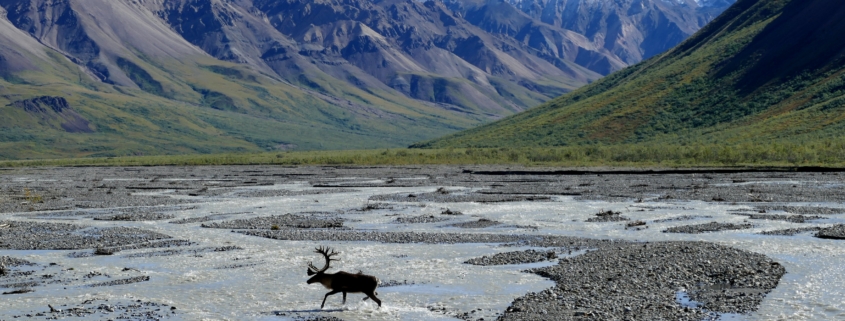Big Data Climate Research Needs Indigenous Expertise for Meaningful Social Impact
Big Data involves gathering and compiling massive amounts of information from multiple data sources, rapidly, with the help of technology. Indigenous expertise needs to be included in Big Data research projects from the start, rather than being ignored or included as an afterthought, to more comprehensively understand Arctic change and to have social impact on Indigenous communities.
The Arctic Animal Movement Archive (AAMA) hosted by Movebank combines information from 30 years of ecological research, and from over 200 studies, that tracked the movements of 86 species from around the world using animal-borne sensors. The Big Data gives “a bigger picture of how animals are responding to changes in the Arctic.” For example, ice loss, an earlier arrival of the spring season, and longer autumns influence where caribou and the Pacific Walrus give birth to their calves, and affect Indigenous hunting practices. Currently, a web search for information about the inclusion of Indigenous people in AAMA research processes garners no results. To have meaningful social impact, Big Data projects need Indigenous communities to inform research processes from the start.
Big data projects may learn from attempts at co-management that aim to redress the historical exclusion of Indigenous people from research processes. For example, two St. Lawrence Island Yupik communities, the United States Fish and Wildlife Service (USFWS), and the Eskimo Walrus Commission link oceanographic data with Indigenous hunters’ and fishers’ knowledge to protect walrus populations and sustain access to country food.
By Leela Viswanathan
(Image Credit: Joris Beugels, Unsplash)




